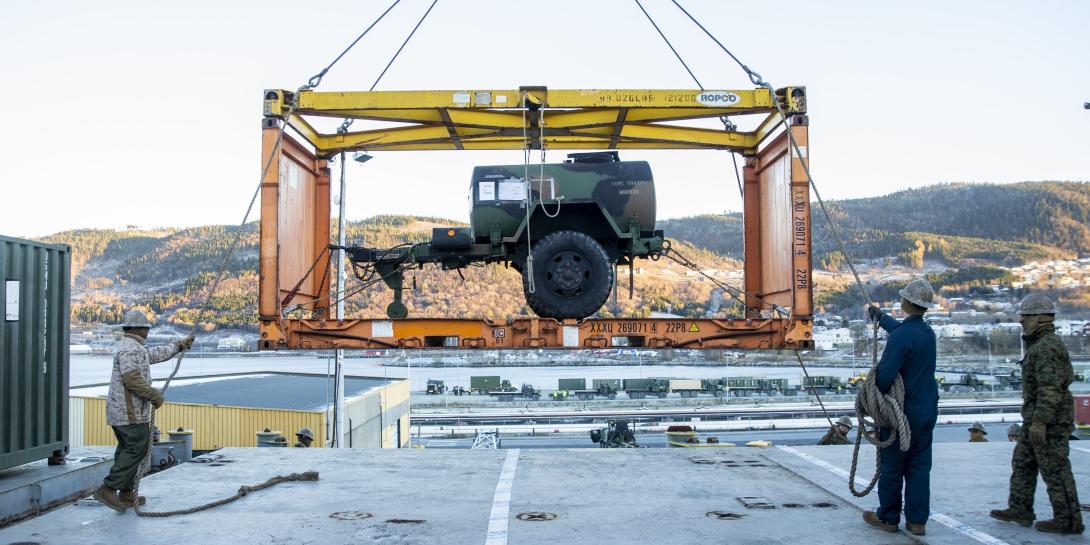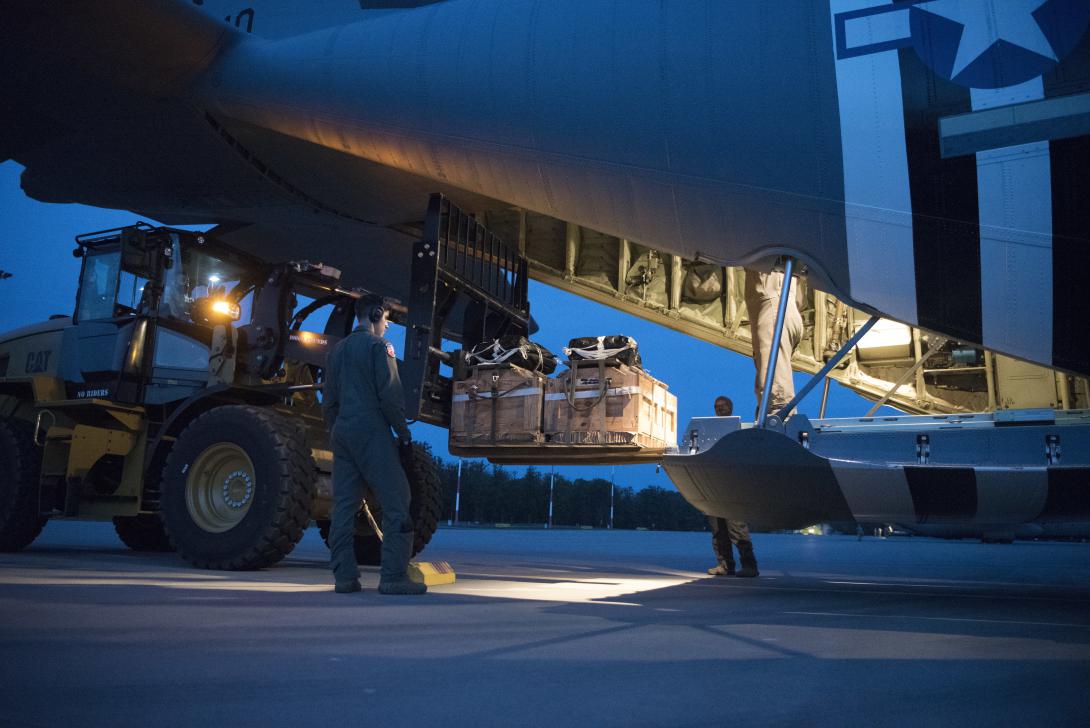Defense Depends on Total Transport
Ensuring the mobility of troops and support equipment in the European theater will depend on coordinated command and control. In anticipation of crises actions and needs, improvements are needed during the upfront coordination as well as to the last mile of transportation capabilities that are insufficient to meet the military’s equipment transportation needs.
Lt. Gen. Ben Hodges, USA (Ret.), former commanding general, U.S. Army Europe, pointed out that military forces from all NATO countries compete for the same rail, highway, bridge and road capacity for troop and equipment transport means during peacetime. The military must determine how to move fast enough under these limited conditions to prevent a crisis from happening and a crisis from turning into a conflict, he said.
Gen. Hodges made the observations during a discussion about NATO’s needs and requirements at the virtual AFCEA Europe Conference and Exposition held jointly with NATO’s new Joint Support and Enabling Command (JSEC).
The challenge, the general said, is for NATO forces to go from peacetime to crisis conditions on very short notice, within days of notification not months. “Can we can we do it? That's the big challenge for us,” he stated.
“I was talking to a young lieutenant colonel, and he said, ‘Sir, don't worry. All of these restrictions, all the challenges will go away once the crisis is declared, and you'll be able to move everywhere you need to move.’ I said, ‘Oh, well, that's encouraging.’
“But then I thought, ‘Well, who declares a crisis?’ And he said, ‘Well, the Bundeswehr.’ When I heard that, I realized it'll be months before any legislative body in any country declares a crisis short of something like a 9/11 incident. So that's our challenge: We've got to be able to move in peacetime conditions fast or faster than Russian Federation forces in order to prevent a crisis from happening,” Gen. Hodges related.
With this as a framework for the discussion, Brigadier Duncan Bedding said defense and deterrence are two of the goals of the military forces of NATO nations, and the latter requires credibility. The commander of Standing Joint Logistics Support Group Headquarters, SHAPE, Belgium, added that successfully delivering the logistics to ensure credibility depends on improving the nations’ ability to collaborate, which requires large-scale exercises.
“We are talking about 30-plus suppliers, 30-plus nations, allies and partners. It's not just about the U.S. forces. It is about all of our allies working in a multinational way, all to a common aim,” Brig. Bedding said. “And if we forget that, we forget it at our peril.”
Europe is a jigsaw puzzle of many nations, he went on, and although Germany is a large land mass, the use of the routes into and across Europe must be balanced properly. “It’s not just a one-shot moment, just the first convoy and it’s done, but rather how do you keep it going over a significant period of time?” the brigadier asked.
Col. Pawel Kwarto, assistant chief of staff J-4, Joint Support and Enabling Command (JSEC), explained that NATO strategies are fully dependent on the reinforcement of forces, and military mobility is part of this reinforcement.
“However, … we see this military mobility as a much wider project, … at the level of the area of responsibility. So, in this context allies need to demonstrate the ability to move a large formation and heavy equipment across the Europe,” Col. Kwarto said.
This capability poses three primary challenges: legal and prosecutable obstacles, including border-crossing procedures; infrastructure limitations; and command and control.
“So, I decided to establish two new entities: Joint Force Command Norfolk, which would ensure the security of the Atlantic, and JSEC, which concentrates on the European continent. In my mind, these two headquarters are both about reinforcement enablement and military mobility,” he stated.
Group Capt. Stuart Gregory, British Royal Air Force, logistician and director, Movement Coordination Center Europe, believes the work on the inland waterways needs to increase for military mobility. “The ability to project particularly deep into the heart of Europe along the Elbe [River] and the Rhine [River] has got to be explored more,” Capt. Gregory said. Nations should engage in simple investment decisions in this area, he added.
In addition, NATO nations must examine railways, the captain pointed out, because using trains to transport equipment is not simply about weight limitations. “It's also about track time, and it's about the coordination. Who do you empower to do that work?” he asked.
Brigadier Bedding emphasized the need to resolve these issues soon. NATO nations must be ready to transition rapidly from peacetime to crises. “Our most challenging point is the ability to be ready and prepared in NATO with the systems and ensure the process is understood not just to do what is contingent planning but also to do the dynamic piece. And that is probably before a NAC [North Atlantic Council] decision is made,” he said.





Comments